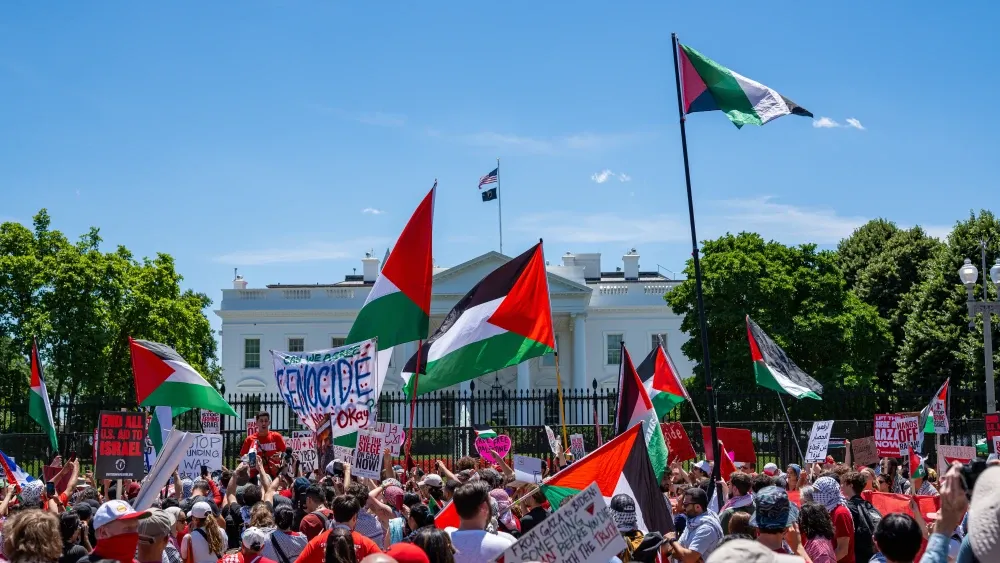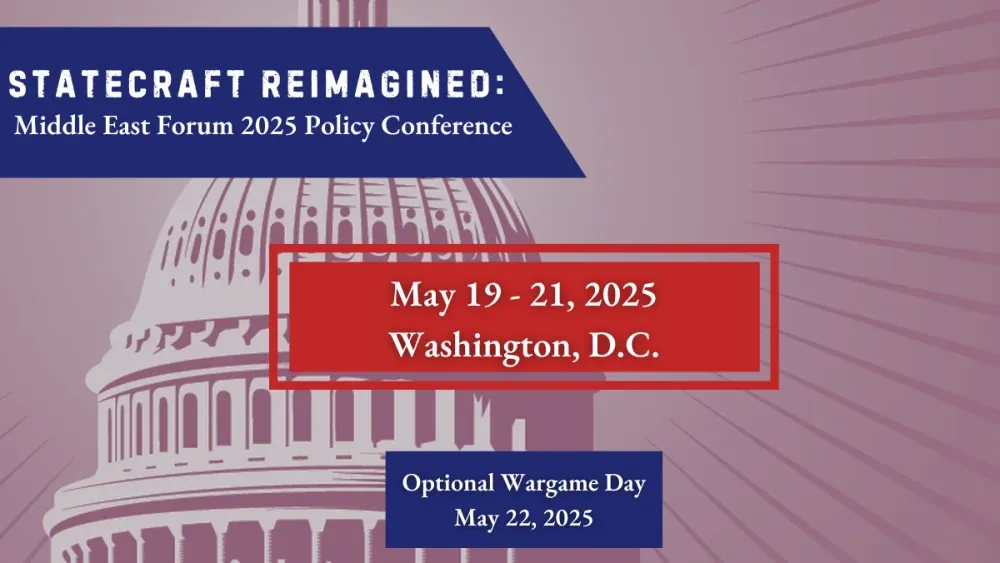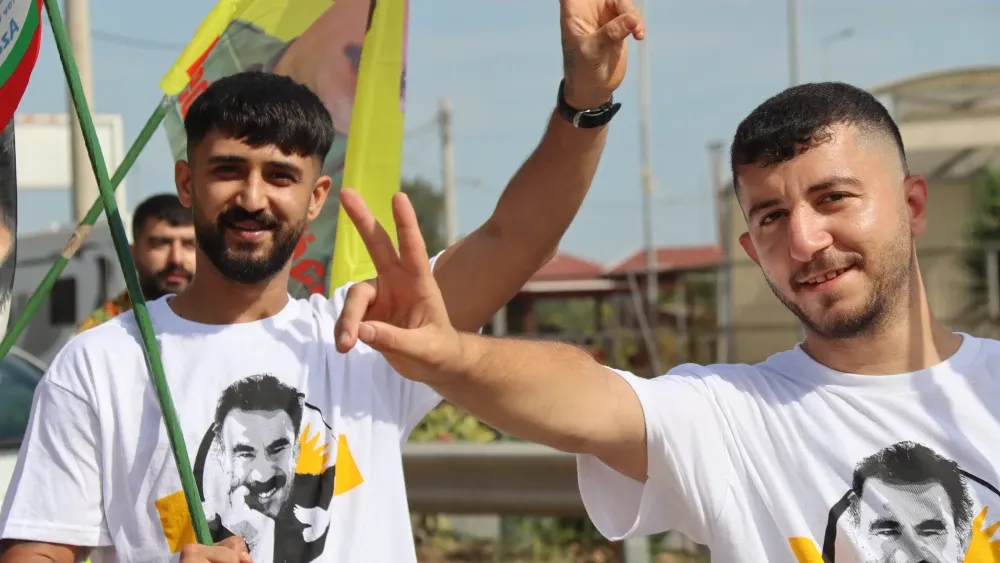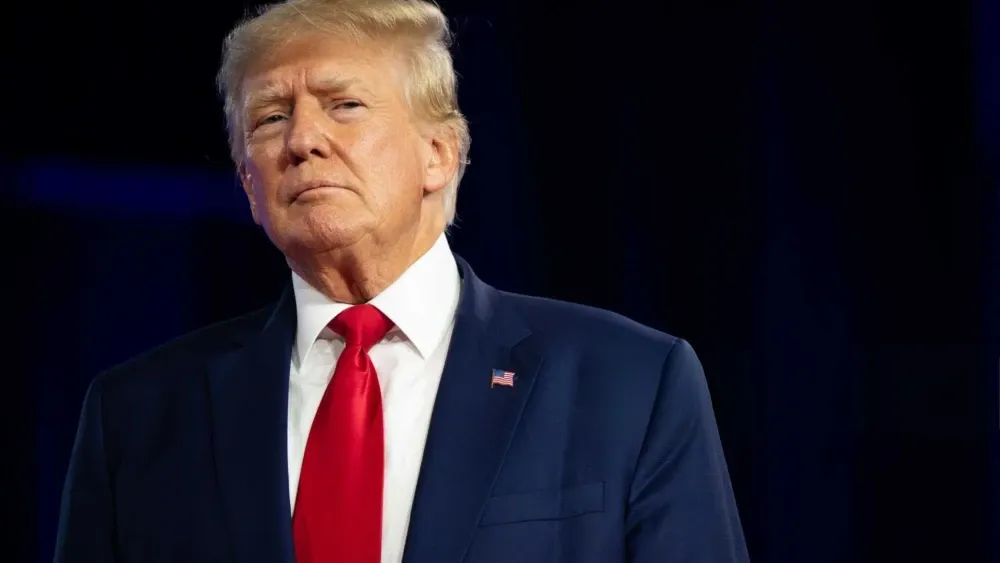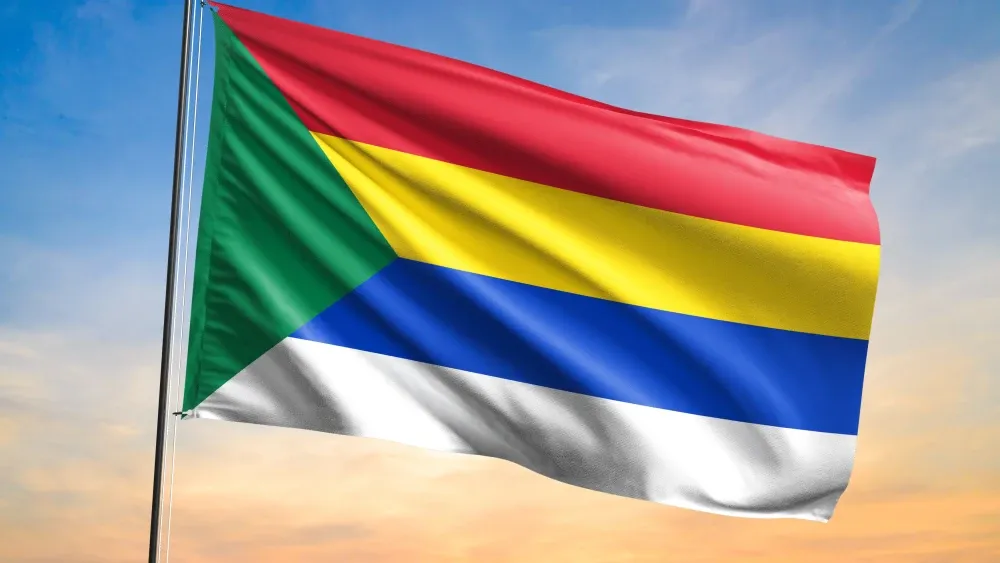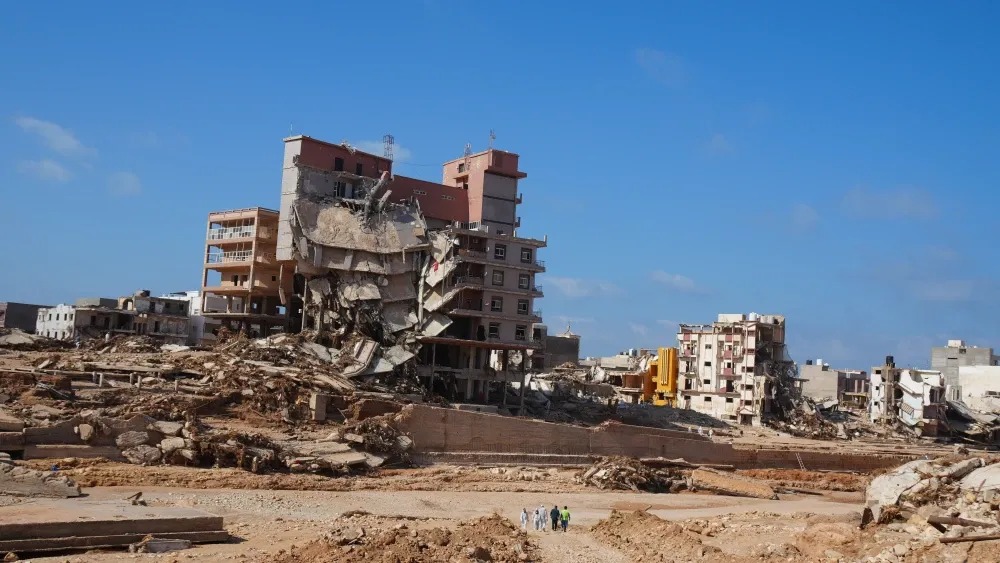| ||
 | ||
| MEF Dispatch: Hamas's Martyrdom Strategy, Why the Kurds Are Important, and A Druze Leader Speaks By Winfield Myers ● Mar 03, 2025 Smart Brevity® count: 6 mins...1616 words We begin today with Daniel Pipes’s analysis of Hamas’s perverse martyrdom strategy of winning by losing. Next, four articles examine the plight of Middle Eastern minorities: three treat the Kurds in Turkey, Syria, and Iraq, recognizing some of the Kurds’ pro-Western views and history of alignment with the U.S. Another features an interview with a Druze leader in Syria. We end with an assessment of Libya’s fragility and what the U.S. can do to stabilize the fractured country. | ||
ICYMI: “The October 7 War: Israel’s Battle for Security in Gaza” with Seth FrantzmanSeth Frantzman’s latest book, The October 7 War: Israel’s Battle for Security in Gaza, looks into the devastating Hamas attack on Israel, the battles that followed, and the global forces at play. In preparing the book, the author had exclusive access to IDF soldiers and commanders and to military strategists. Mr. Frantzman will in this talk explore how Israel responded to the October 7 attacks, and what this conflict means for the future of the Middle East. How did Hamas orchestrate such a deadly assault? What role did international players have? And how will this war reshape the region? Seth Frantzman is an adjunct fellow at the Foundation for Defense of Democracies. The author of three books, he is the acting news editor and senior Middle East correspondent and analyst at The Jerusalem Post. He has written for a variety of media, including the Wall Street Journal, The Hill, The Spectator, the National Interest, and other outlets. He holds a B.A. in history and political science from the University of Arizona and a Ph.D. from the Hebrew University of Jerusalem. To watch the full podcast, click here. | ||
The Genteel Martyrdom of Israel HatersHamas exploits violence to manipulate global perception, turning devastation into a tool for gaining sympathy. It wins politically by losing militarily. Why it matters: This cynical tactic aims to demonize Israel while courting international outrage, leveraging Palestinian suffering as a strategic asset.
The big picture: By casting Palestinians as the oppressed, Hamas taps into a global narrative of victimhood, rallying support from radical leftists and Islamists alike.
What's next: Hamas’s approach is sparking push-backs as Western societies grow increasingly intolerant of such disruptive tactics.
To read the full article, click here. | ||
Middle East Forum 2025 Policy Conference – additional speakers announced, discounted tickets!Join us at the Middle East Forum’s 2025 Policy Conference, taking place May 19–21 in Washington, D.C. Statecraft Reimagined will gather leading experts, diplomats, and policymakers to discuss the most urgent and complex issues shaping the future of the Middle East. This extraordinary event is poised to be the premier Middle East policy gathering in D.C. this year, offering unparalleled insights, networking, and strategic guidance. We are also pleased to announce that, thanks to a generous contribution from an anonymous donor, we are able to offer a select number of general admission tickets at a discounted rate of $550. These tickets are available on a first-come, first-served basis. Be sure to get yours now. To register, click here. | ||
Kurds Would Be Foolish to Trust Turkey’s PeaceKurdistan Workers’ Party (PKK) founder Abdullah Öcalan calls for the PKK to disarm, urging them to convene a congress to lay down arms, but the path to peace is fraught with obstacles. Why it matters: The call for disarmament is significant but lacks a clear democratic successor, risking further instability among Kurds.
The backdrop: Turkey's history of oppressive tactics against the Kurds complicates trust, with past ceasefires broken by violence.
What's next: Genuine reconciliation requires Turkey to address its own authoritarian practices and human rights abuses.
To read the full article, click here. | ||
Why and How Trump’s Renewed America First Agenda Should Include the KurdsTrump's 2019 troop withdrawal from Kurdish-controlled Rojava in northern Syria underscores America's shifting alliances and strategic interests in the Middle East. Why it matters: The withdrawal exposed the Kurds to Turkish aggression, challenging their role as key allies in the fight against ISIS and Iranian proxies.
The big picture: Trump's second term may redefine U.S.-Kurdish relations, leveraging their democratic values to counter regional authoritarianism.
What's next: As Trump continues to push for troop withdrawals, the U.S. should maintain its commitment to Kurdish protection, balancing regional security with its own strategic objectives.
To read the full article, click here. | ||
Voice of America’s Kurdish Service Needs Top-to-Bottom ReformVOA Kurdish's outdated approach to its mission risks undermining U.S. influence and credibility amid escalating Middle Eastern tensions. Why it matters: By clinging to obsolete strategies, VOA Kurdish squanders its potential to counter authoritarian regimes and promote democracy.
The big picture: As Turkey prepares for an invasion of Syrian Kurdistan and Iraqi elections approach, the Kurdish fight for autonomy intensifies.
What's next: Immediate restructuring of VOA Kurdish is crucial to align with U.S. strategic goals, prioritizing Kurmanji, the most widely spoken Kurdish dialect, and rooting out internal biases.
To read the full article, click here. | ||
Druze Factions of al-Suwayda': Interview with a Member of Kata’ib Dir’ al-TawhidThe Syrian Druze province of Al-Suwayda' comes into focus as Druze factions like Kata’ib Dir‘ al-Tawhid navigate regional pressures and shifting alliances post-Assad. Aymenn Jawad Al-Tamimi interviewed a representative from the faction. Why it matters: The Druze in al-Suwayda’ challenge the new Syrian regime’s authority while maintaining a pragmatic stance toward Israel, driven by a desire for local stability and autonomy.
The big picture: Israeli statements about protecting the Druze and demilitarizing the province add complexity to the province's already tense dynamics.
What's next: As the Druze in al-Suwayda' continue to assert their position, their interactions with emerging entities like the Military Council will be pivotal.
To read the full article, click here. | ||
Libya: The Battleground of Superpowers, Islamism, and CorruptionLibya's descent into chaos following the fall of Muammar Gaddafi in 2011 has turned it into a battleground for foreign powers, jeopardizing regional stability and U.S. interests. Why it matters: Libya's strategic location and vast oil reserves make it a geopolitical linchpin, yet its instability threatens to unravel the fragile peace in North Africa and beyond.
The big picture: Libya's lawlessness serves as a breeding ground for jihadist groups, Islamists, and transnational criminals, exacerbating regional conflicts and threatening global security.
What's next: To prevent Libya from becoming a failed state, the U.S. should cooperate with regional allies and lead a decisive strategy involving diplomatic pressure on foreign powers, intelligence-sharing with regional allies, and targeted sanctions against corrupt elites.
To read the full article, click here. | ||
Further Reading: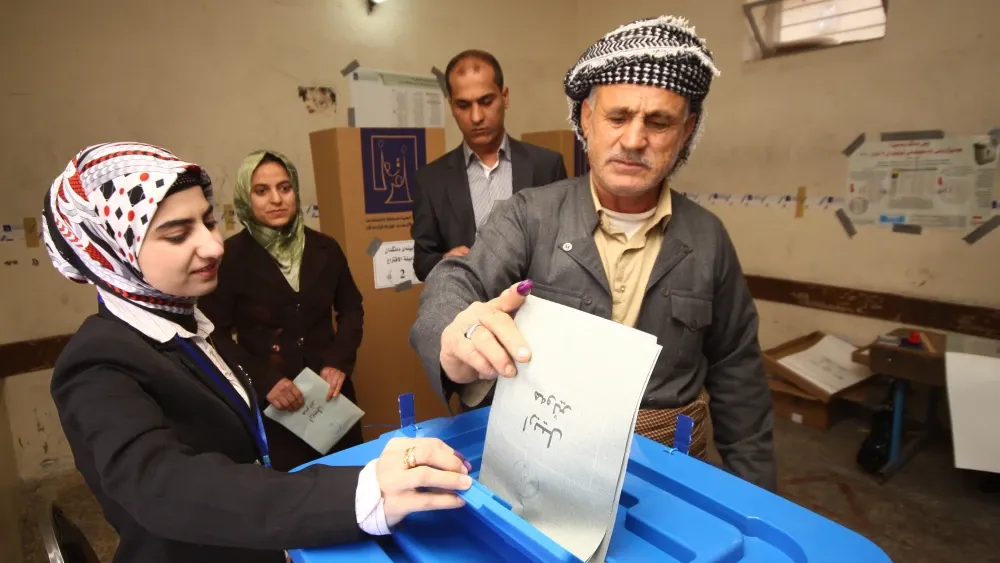
| ||
| Thank you for your support and for relying on the Middle East Forum for cogent analyses of this crucial region. If you enjoyed this issue of the MEF Dispatch, please forward it to a friend. We invite you to use the comments feature to let us know your thoughts on the Dispatch and the issues we cover. Sincerely, Winfield Myers | ||
| Was this edition useful? Your responses are anonymous | ||
| Powered by | ||
| ||


